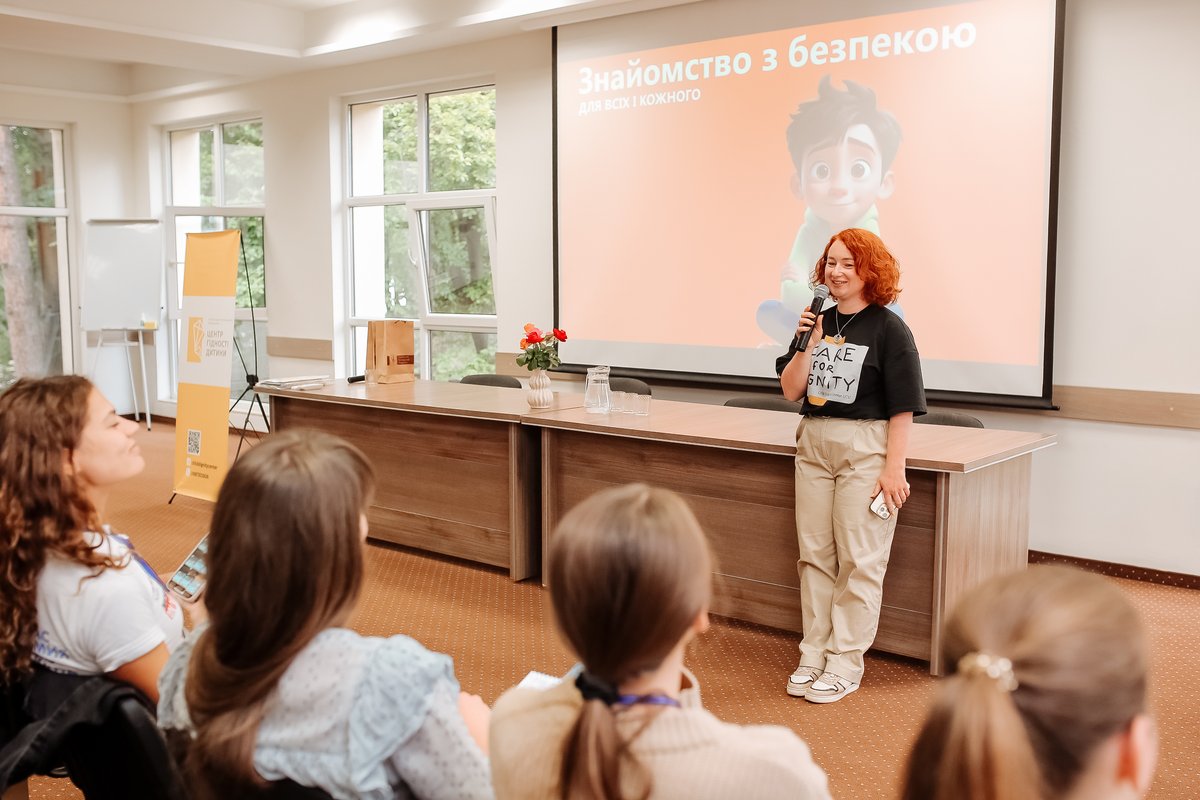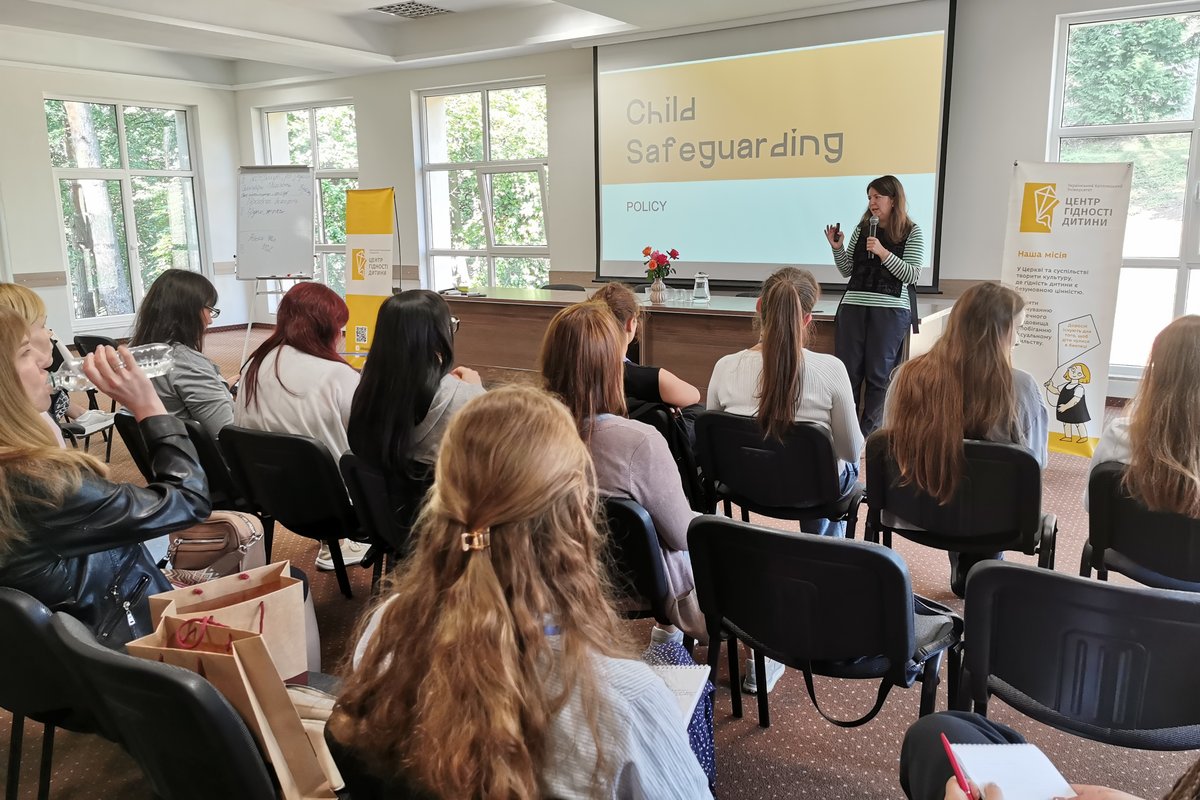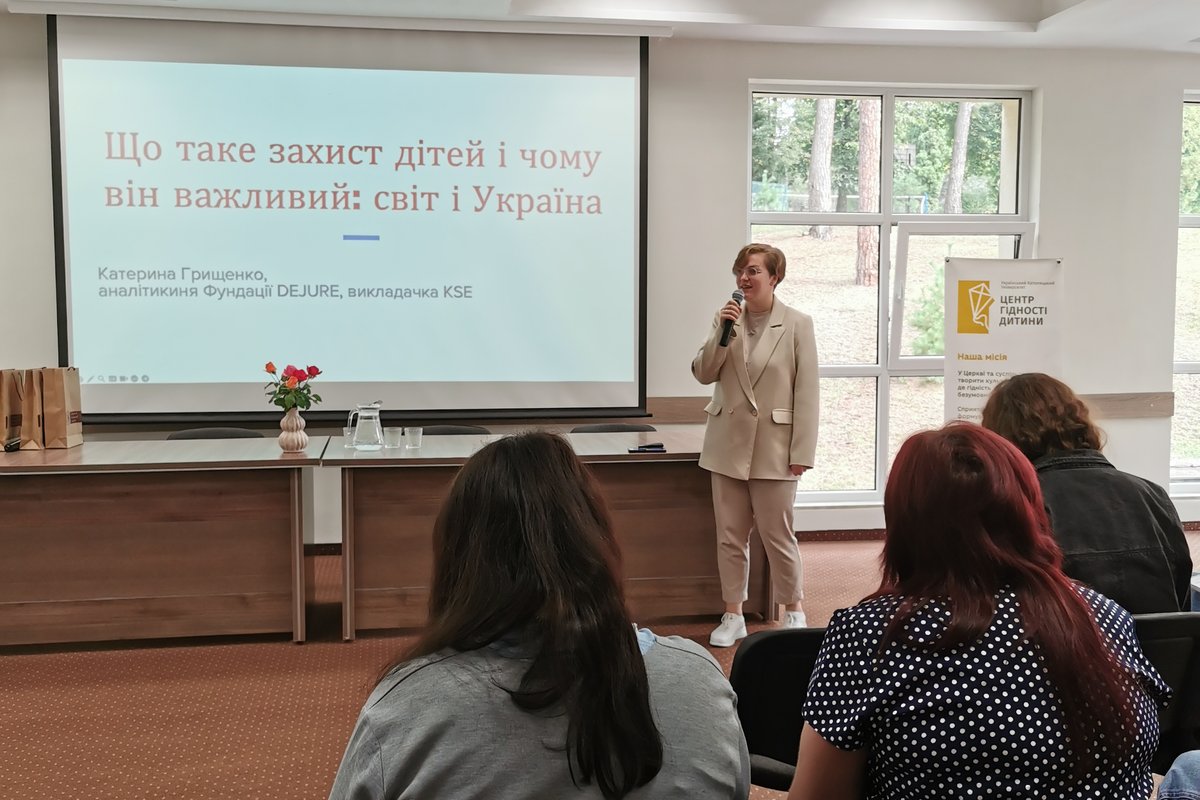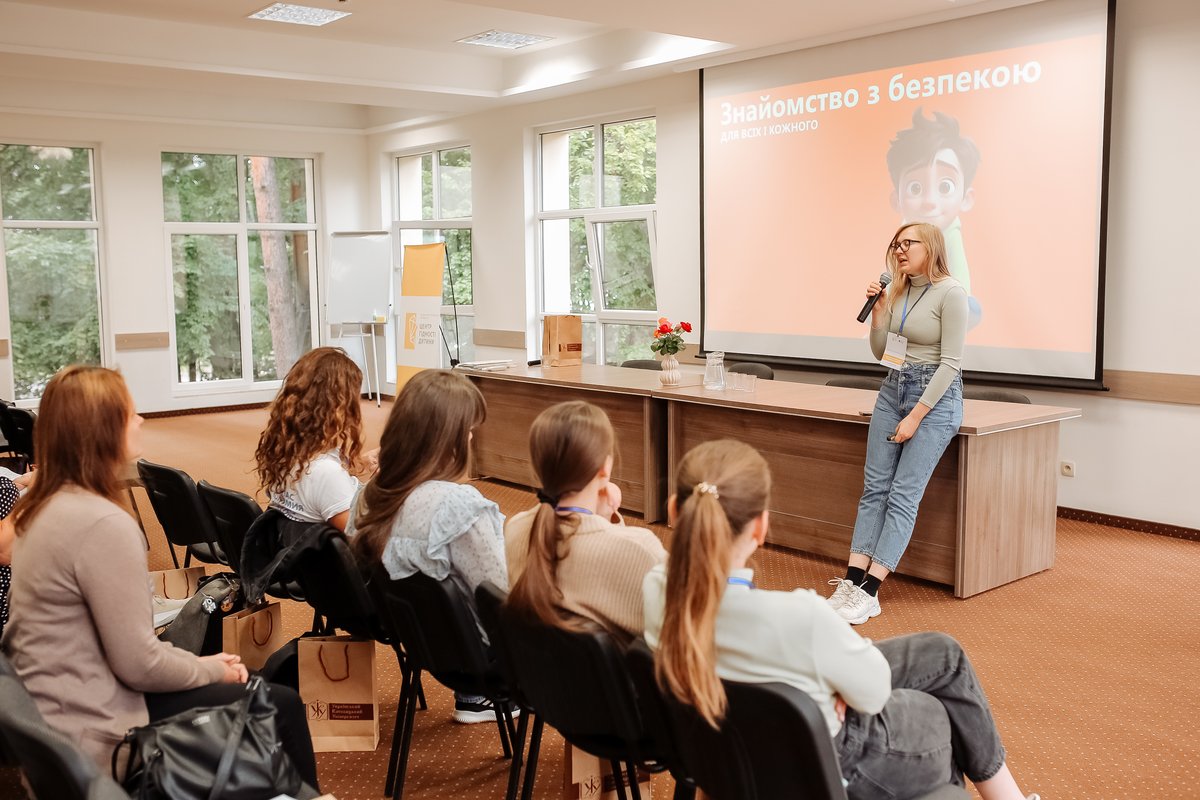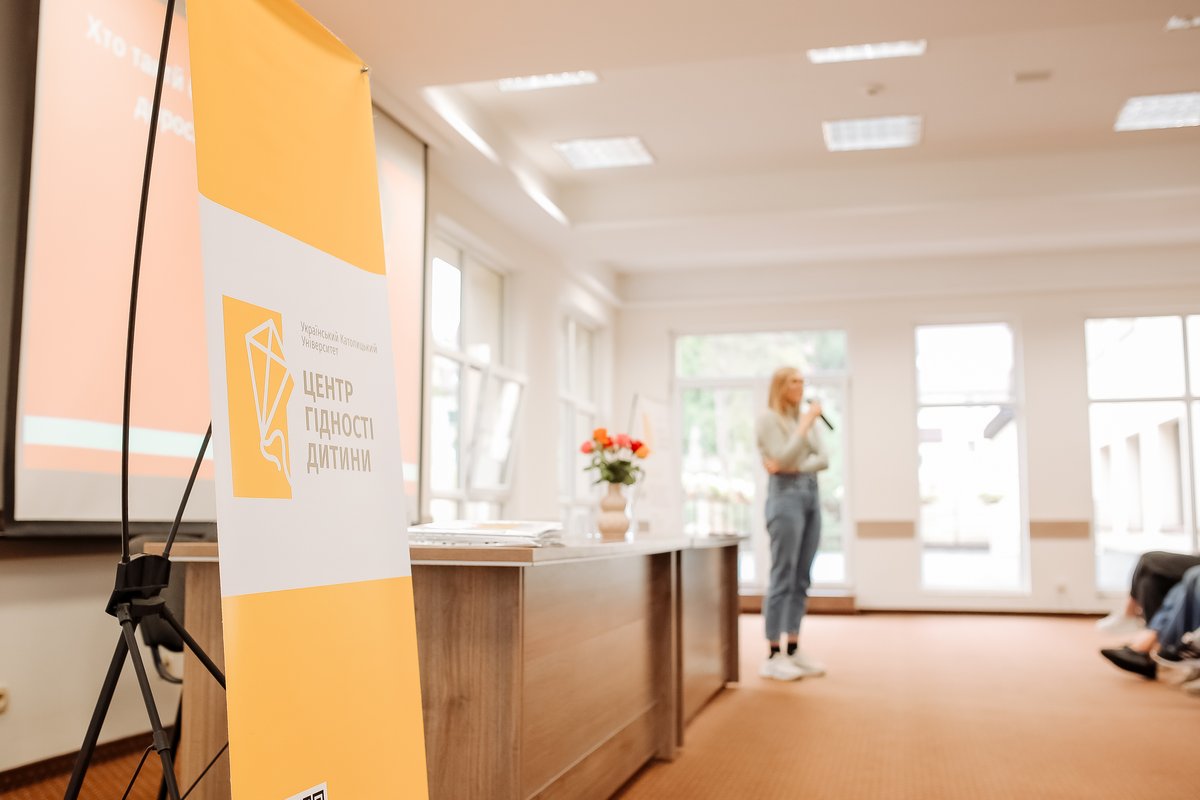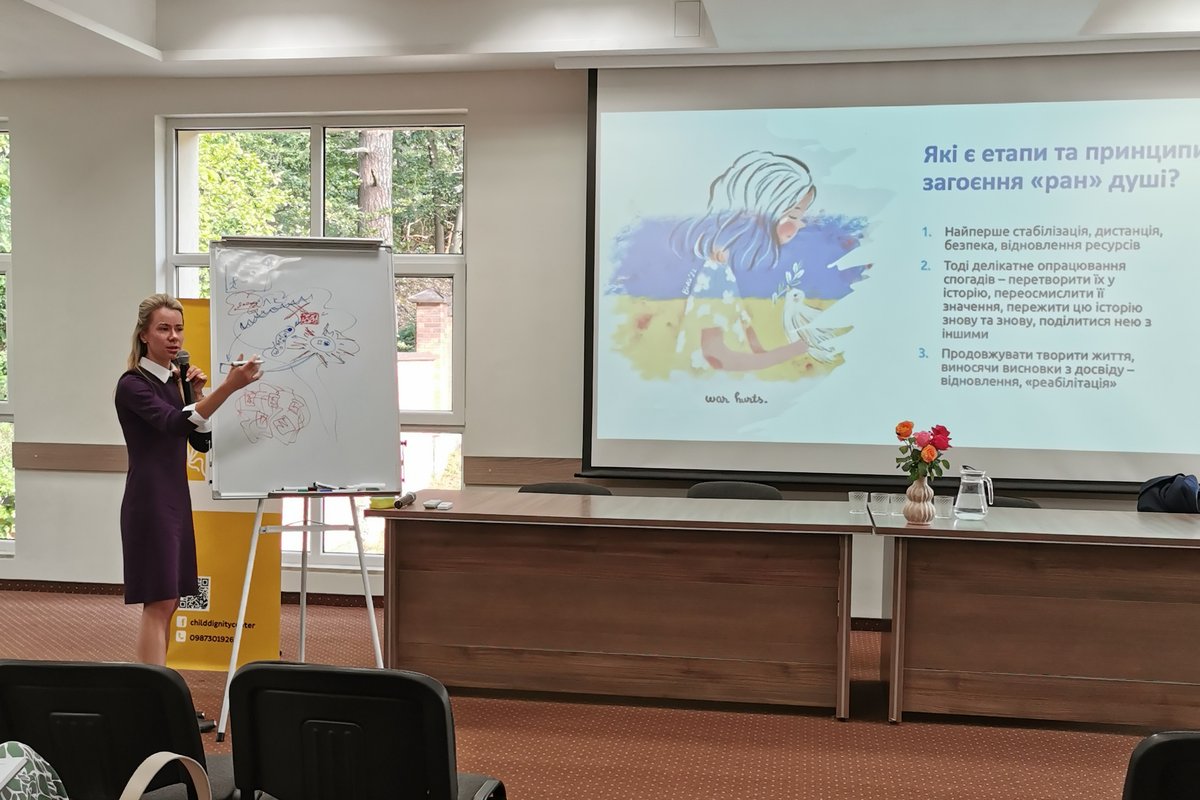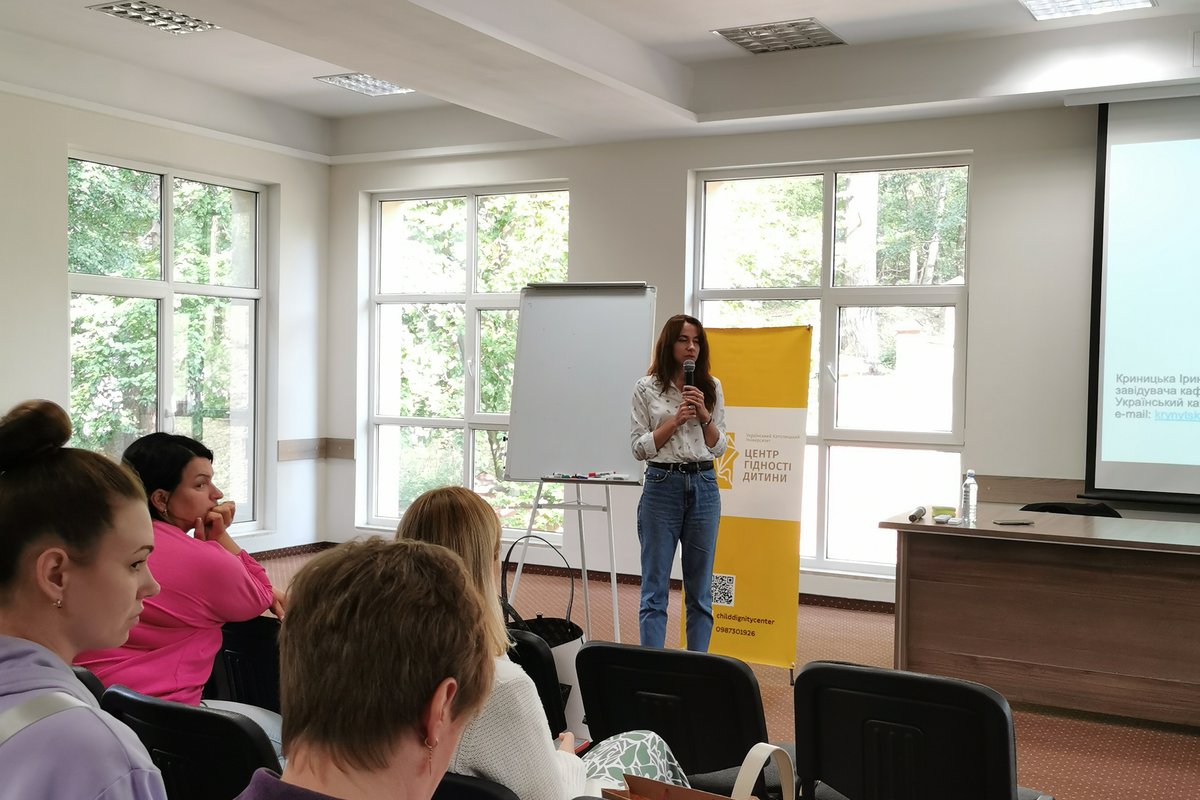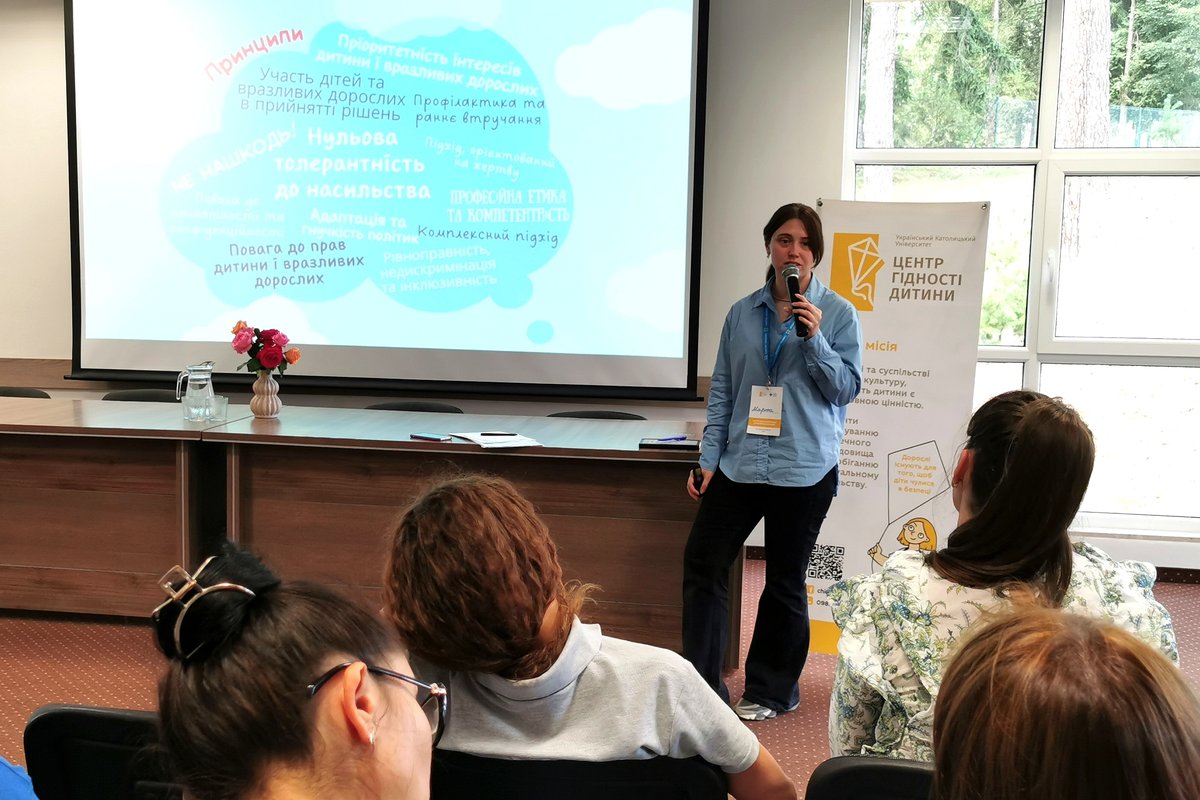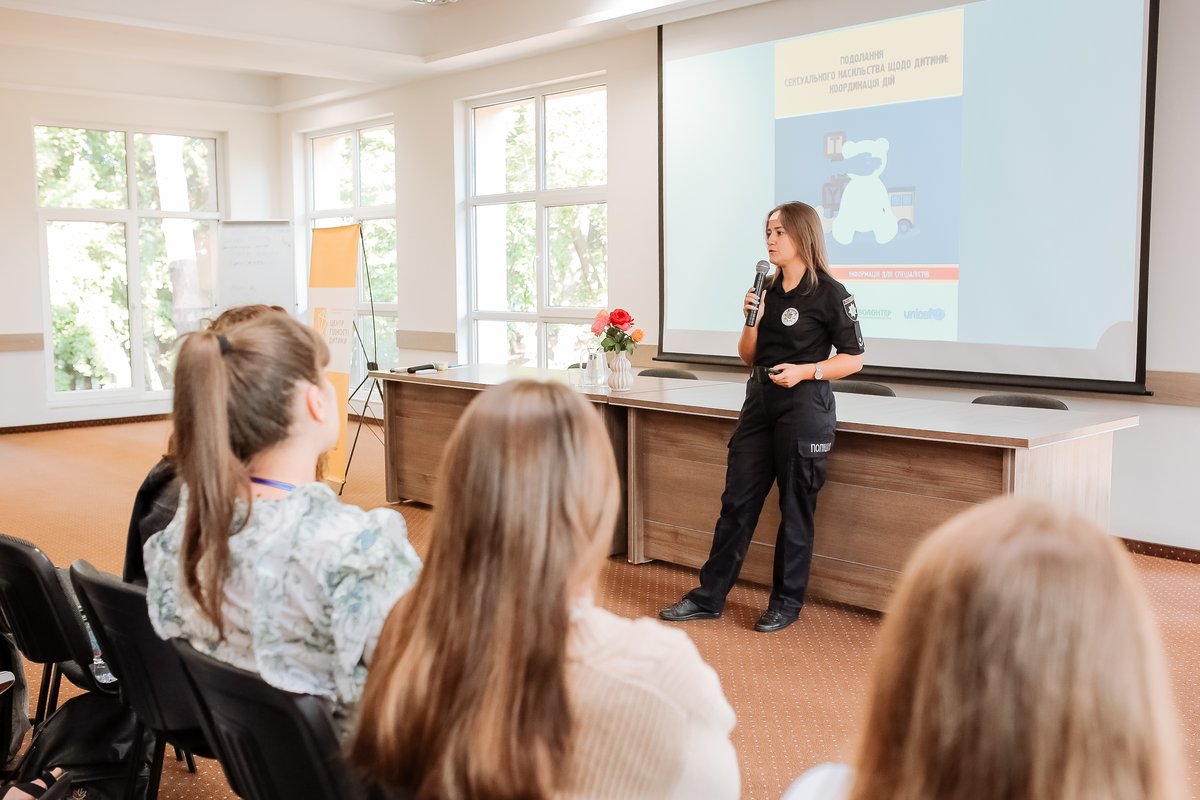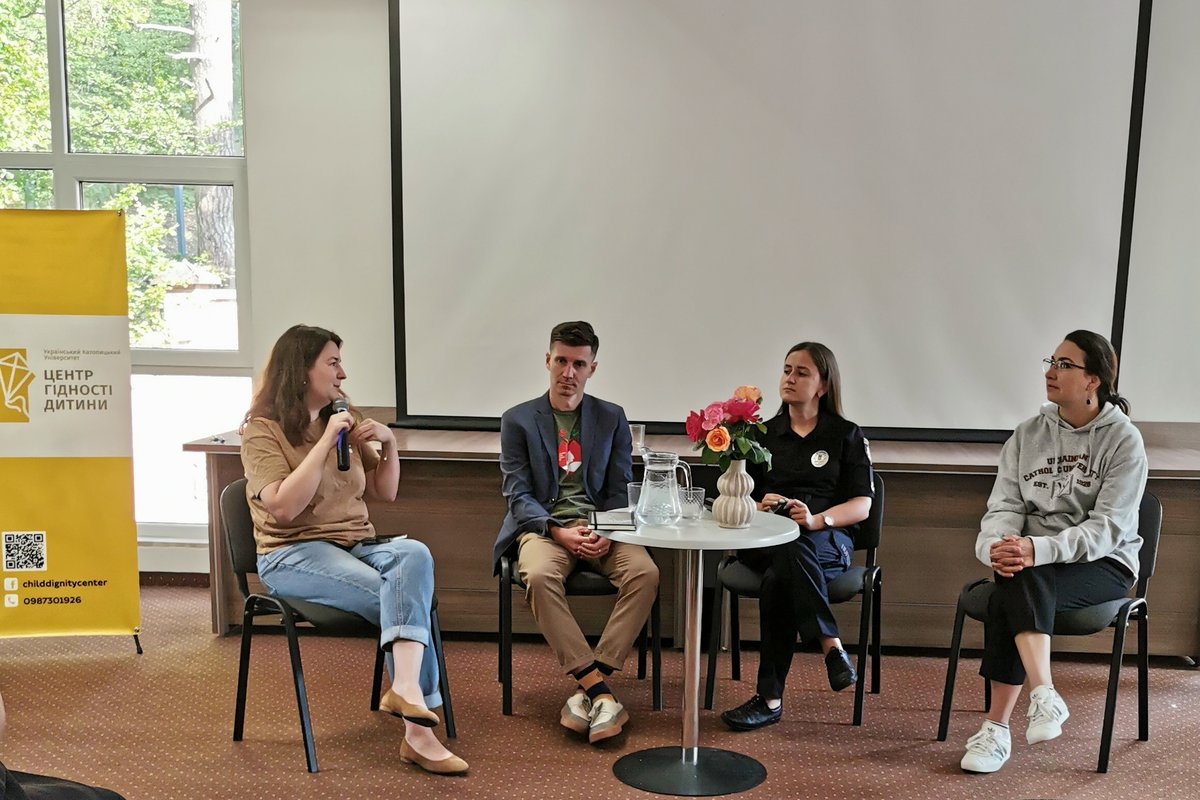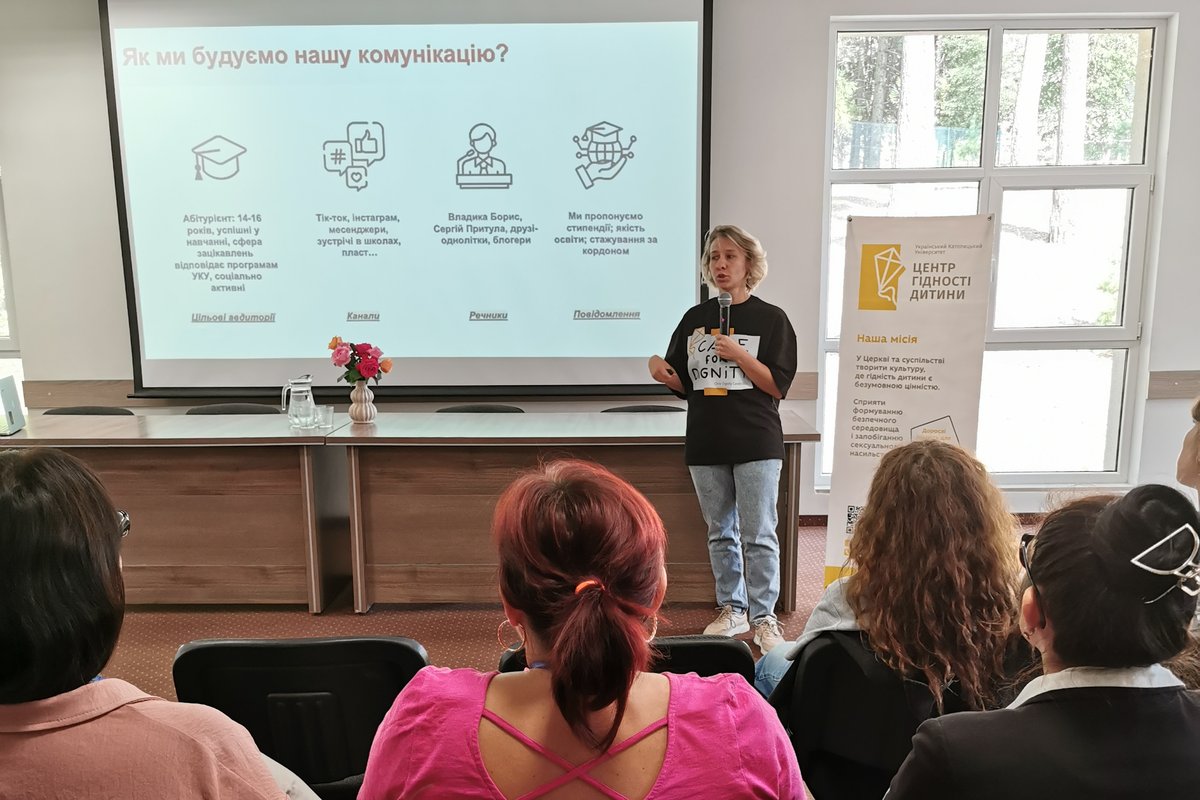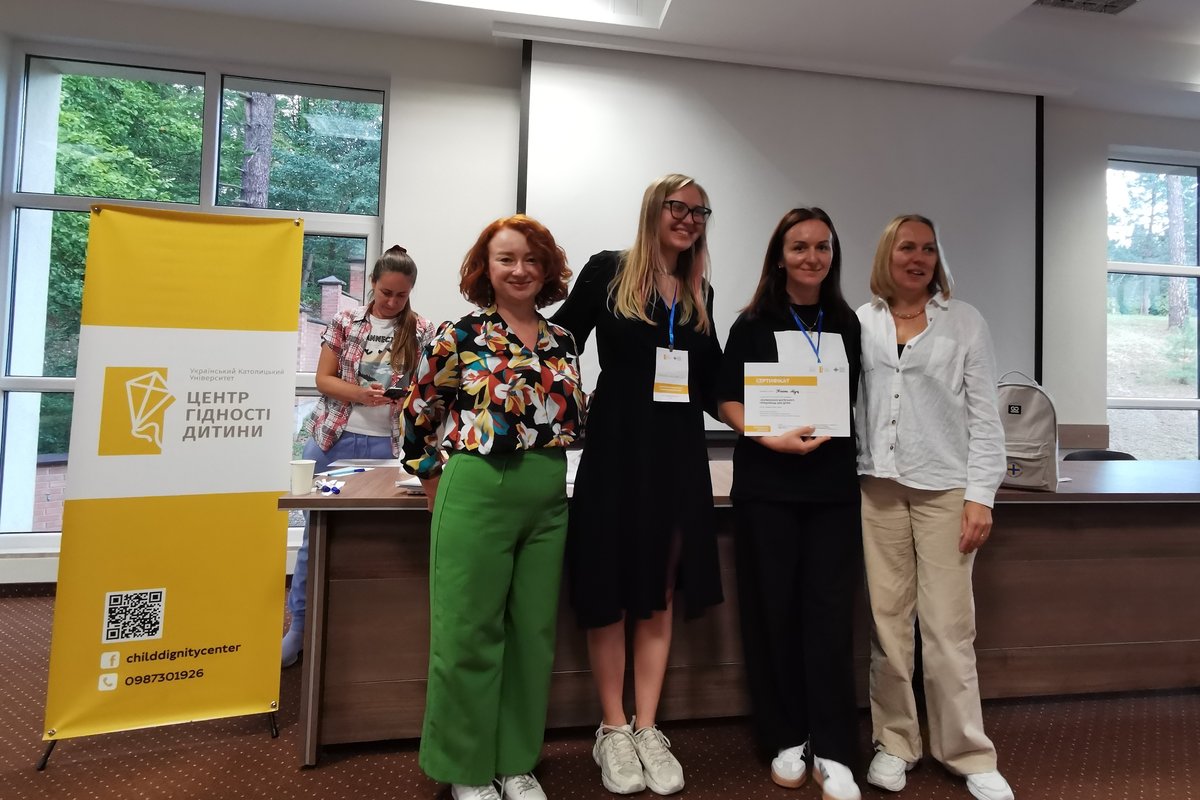Child safety is in the first place: specialists of Caritas of Ukraine underwent a three-day training from the Center for the Dignity of the Child of UCU
On September 16-18, 45 employees of 39 local organizations and the national office of Caritas of Ukraine passed the educational program "Formation of a safe environment for children" from the Center for the Dignity of the Child of the Ukrainian Catholic University.
14 lectures, a panel discussion with response services, topics devoted to the prevention and intervention of violence against children, creating a safe environment, communication with victims of violence and communication in crisis situations.
The first school day began with joint prayer. Next, the head of projects and programs of the UCU Child Dignity Center, the training coordinator, Natalya Tarnovska, congratulated the Caritas of Ukraine workers and briefly outlined the training program.
Khrystyna Shabat, the head of the Center for the Dignity of the Child at UCU gave a lecture about the challenges of safety for children around the world, and also introduced the results of the study "Sexual violence in Ukraine: from awareness to protection" (2021), which was conducted by the Center for the Dignity of the Child at UCU.
Lawyer Kateryna Hryshchenko, analyst of the DEJURE Foundation, spoke about the adoption of the Convention on the Rights of the Child, legal aspects of child protection.
Who are safe adults, why is it important for every child to have them and what impact do they have on a child's life, as well as what a safe environment is, Anastasia Shiroka, psychologist, associate professor of the Department of Psychology and Psychotherapy of the Faculty of Health Sciences of the Ukrainian Catholic University, shared. Subsequently, Anastasiya Nabokova, a Caritas Ukraine child protection expert, discussed with the participants the practical aspects of the topic of safe adults and a safe environment.
At the end of the first day of training, Khrystyna Shabat talked about zero tolerance for violence, why it should become part of the culture, and what are the indicators of a child-friendly organization.
The leitmotif of the second day of training was the question "how to survive traumatic events?".
"Everything that happens in childhood affects our lives, and therefore it is important to help a child cope with a traumatic experience, promote the restoration of justice and take care of mental health," said Khrystyna Shabat, head of the Center for the Dignity of the Child at UCU.
Child psychiatrist, psychotherapist in the cognitive-behavioral therapy method Yuliana Maslak emphasized that the first reaction to traumatic events should be stabilization, then distancing, follow up so that the child is safe in order to restore the resource. And later, you can start delicate processing of memories - turn them into a story, rethink its meaning, relive this story and share it with others. "Continue to create life, drawing conclusions from experience - this is how restoration, "rehabilitation" takes place," Yuliana Maslak emphasized.
Iryna Krynytska, Candidate of Sociological Sciences, Associate Professor of the Department of Pedagogy and Social Work of the Faculty of Health Sciences of UCU spoke about the prevention and intervention of sexual violence.
Marta Yatsyshyn, manager of policy implementation and security system of Caritas of Ukraine, explained the policy of preventing violence against children of Caritas of Ukraine: "There are no universal answers to cases of threats of violence against children. An individual approach to each child is important," said Marta Yatsyshyn.
"It is important to preserve stability and peace when children share their experiences of violence. Show sensitivity, attention, warmth. So as not to push the child away in his vulnerability with his reaction. To be allowed to talk, to tell your story, without feeling shame and guilt," said candidate of psychological sciences, positive psychotherapist and clinical psychologist Oleksandra Nizdran. At the end of the second training day, she spoke about the basic principles in working with children who have experienced violence and how to take care of the child's interests.
The third day of training "Creating a safe environment for children" from the Center for the Dignity of the Child of UCU for Caritas of Ukraine employees was filled with group work, interaction with response services and the presentation of certificates.
The training began with a lecture by Olga Kovalchuk, a police major, head of the juvenile prevention department of the Department of Preventive Activities of the National Police Service in the Lviv region. Mrs. Olga talked about the mechanisms for reporting sexual violence crimes according to the legislation of Ukraine.
The panel discussion with response services was rich and useful with the participation of Volodymyr Frydrak, head of the "Service for Children" department of the humanitarian policy department of the Lviv City Council, Olga Kovalchuk, head of the juvenile police department of the Lviv region, Oksana Kovalska, director of the UCU Medical Clinic. The discussion was moderated by Khrystyna Shabat, head of the Center for the Dignity of the Child at UCU.
Veronika Savruk, head of the UCU information and marketing department, told how to communicate in crisis situations.
Later, Marta Yatsyshyn, manager of the implementation of policies and the security system of Caritas of Ukraine, spoke about the code of conduct of employees and the principles of interaction with children. At the end of the training day, Anastasia Nabokova, a child protection expert from Caritas of Ukraine, spoke about the child protection ecosystem.
The three-day training was finalized with the presentation of certificates.
We are sincerely grateful to Caritas of Ukraine and all partners for trust, cooperation and fruitful training on children's safety, participants for active participation, trainers for important knowledge. We appreciate the partnership and believe that with joint efforts we will do more for the safety of children.
